Most Underrated Bengali Movies You Should Watch.
Bengali cinema, also known as Tollywood, has a rich history of producing some of the most thought-provoking and critically acclaimed films in India. While movies like “Pather Panchali” and “Charulata” have gained international recognition, there are many underrated gems in Bengali cinema that often go unnoticed.
One such underrated Bengali movie is “Meghe Dhaka Tara” directed by Ritwik Ghatak. Released in 1960, this film tells the story of a young woman named Neeta who struggles to support her family in post-partition Kolkata. The film beautifully captures the socio-political turmoil of that era and the emotional journey of its protagonist. Despite its powerful storytelling and brilliant performances, “Meghe Dhaka Tara” did not receive the recognition it deserved at the time of its release.
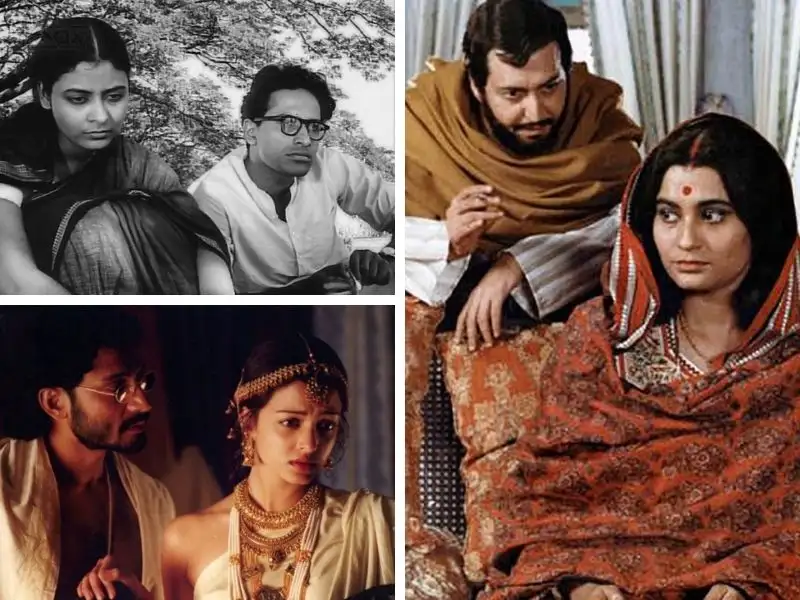
Another hidden gem in Bengali cinema is “Chokher Bali” directed by Rituparno Ghosh. Based on a novel by Rabindranath Tagore, this film explores themes of love, betrayal, and societal norms in 19th-century Bengal. The movie revolves around the life of Binodini, a young widow who finds herself entangled in a complex web of relationships. With its stunning cinematography and stellar performances by Aishwarya Rai Bachchan and Prosenjit Chatterjee, “Chokher Bali” is a cinematic masterpiece that often goes unnoticed by mainstream audiences.
One Bengali film that deserves special mention is “Antaheen” directed by Aniruddha Roy Chowdhury. This romantic drama tells the story of two individuals who find solace in each other’s company amidst the chaos of urban life. With its soulful music and heartfelt performances by Rahul Bose and Radhika Apte, “Antaheen” beautifully captures the complexities of modern relationships. Despite being critically acclaimed, this film did not receive the commercial success it deserved.
Lastly, “Baishe Srabon” directed by Srijit Mukherji is another underrated gem in Bengali cinema. This crime thriller follows the story of a detective who is on a mission to catch a serial killer. With its gripping narrative and stellar performances by Prosenjit Chatterjee and Parambrata Chatterjee, “Baishe Srabon” keeps the audience on the edge of their seats till the very end. Despite its engaging plot and brilliant execution, this film did not receive the recognition it deserved outside of Bengal.
Bengali cinema has a plethora of underrated movies that often go unnoticed by mainstream audiences.
“Ghare-Baire”
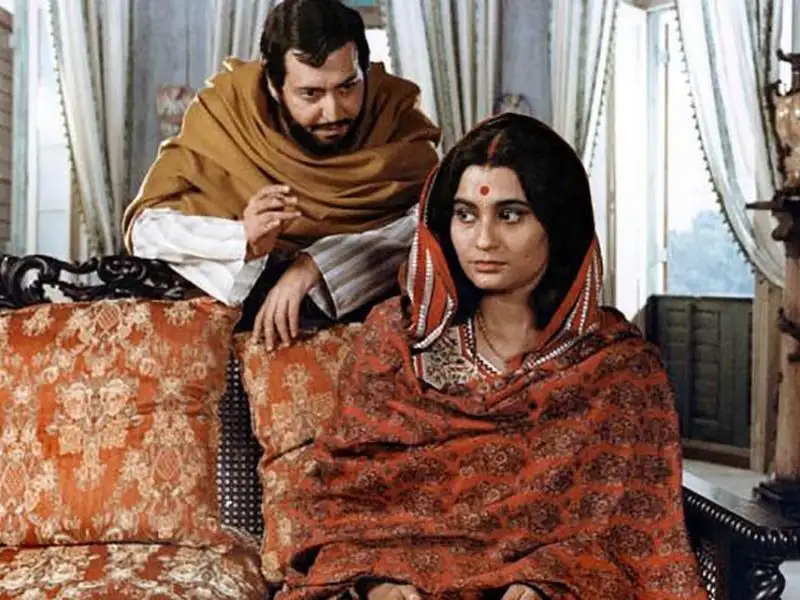
Directed by the legendary Satyajit Ray, “Ghare-Baire” is an adaptation of Rabindranath Tagore’s novel of the same name. The film explores themes of nationalism, love, and personal freedom against the backdrop of the Swadeshi movement in Bengal. Set in the early 20th century, during a time of political unrest and cultural awakening in India, “Ghare-Baire” delves into the complex dynamics between the characters as they navigate their individual desires and the larger socio-political landscape.
The story revolves around the lives of three main characters – Bimala, Nikhilesh, and Sandip. Bimala, played by Swatilekha Sengupta, is a young and naive woman trapped within the confines of her traditional household. Her husband, Nikhilesh, portrayed by Victor Banerjee, is a progressive and idealistic man who believes in the power of education and enlightenment. Their lives take a tumultuous turn when Sandip, played by Soumitra Chatterjee, enters the picture.
Sandip is a charismatic and influential leader of the Swadeshi movement, advocating for the boycott of British goods and the promotion of Indian products. His magnetic personality and fiery rhetoric captivate Bimala, drawing her into a world of political activism and personal awakening. As Bimala becomes increasingly infatuated with Sandip, the boundaries between love, loyalty, and patriotism blur, leading to a series of emotional conflicts and moral dilemmas.
Ray’s masterful direction brings out the nuances of the characters, their motivations, and the larger themes at play. Through his careful storytelling and attention to detail, he captures the essence of Tagore’s novel, highlighting the complexities of human relationships and the impact of political ideologies on personal lives.
Visually, “Ghare-Baire” is a treat for the eyes. Ray’s use of vibrant colors, detailed set designs, and exquisite cinematography transports the audience to the early 20th century Bengal. The film’s soundtrack, composed by Satyajit Ray himself, adds another layer of depth and emotion to the narrative, enhancing the overall viewing experience.
“Ghare-Baire” remains a significant contribution to Bengali cinema and a testament to Satyajit Ray’s talent as a filmmaker. It showcases the power of storytelling and the ability of cinema to explore complex themes and provoke introspection. Whether you are familiar with Tagore’s work or not, this film is a compelling exploration of love, politics, and the choices we make in the pursuit of personal freedom.
“Meghe Dhaka Tara”
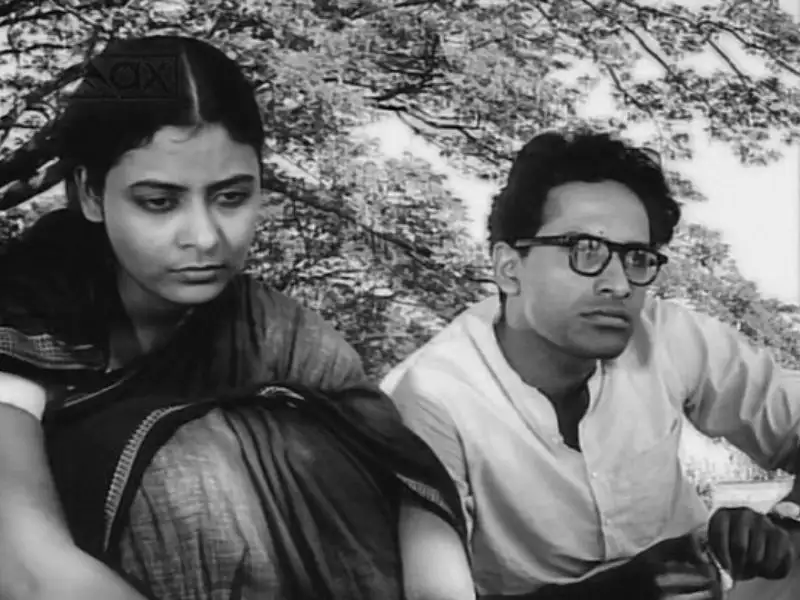
Directed by Ritwik Ghatak, “Meghe Dhaka Tara” is a poignant tale of a family struggling to make ends meet in post-partition Bengal. The film follows the life of Neeta, a selfless and talented young woman who sacrifices her dreams for the well-being of her family. Neeta’s family, like many others in the aftermath of the partition, finds themselves in a state of constant struggle. The once prosperous city of Kolkata is now plagued by poverty and despair, with people trying to rebuild their lives amidst the ruins.
Neeta, the eldest daughter in the family, becomes the pillar of support for her loved ones. She is a gifted singer with dreams of pursuing a career in music, but her aspirations are overshadowed by the responsibility she feels towards her family. Neeta’s selflessness knows no bounds as she works tirelessly to provide for her siblings and parents, putting their needs above her own. Her dreams and desires are pushed aside as she becomes the sole breadwinner, taking on odd jobs and enduring hardships to make ends meet.
“Meghe Dhaka Tara” delves deep into the themes of poverty and sacrifice, portraying the harsh realities faced by many families during that time. The film captures the essence of the era, painting a vivid picture of the struggles, both economic and emotional, that the characters go through. Ghatak’s direction brings out the raw emotions of the characters, highlighting their resilience and strength in the face of adversity.
The title of the film, “Meghe Dhaka Tara” or “The Cloud-Capped Star,” is symbolic of Neeta’s dreams and aspirations. Just as a star hidden behind clouds is unable to shine, Neeta’s own dreams are obscured by the challenges she faces. The film beautifully captures her journey, the sacrifices she makes, and the toll it takes on her spirit.
Through Neeta’s story, Ghatak sheds light on the broader socio-economic issues of the time, emphasizing the impact of partition on families and the struggle to rebuild their lives. “Meghe Dhaka Tara” serves as a powerful reminder of the indomitable human spirit, even in the face of immense hardship.
“Chokher Bali”
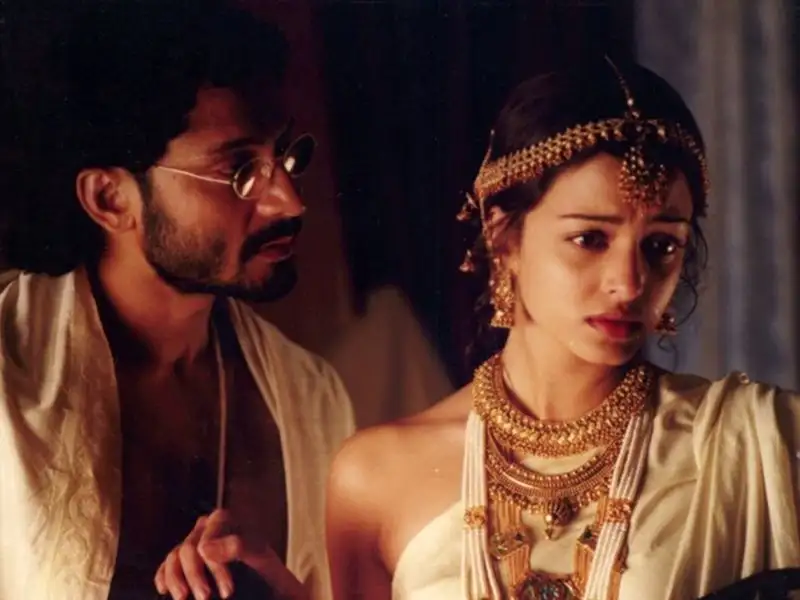
Directed by Rituparno Ghosh, “Chokher Bali” is based on Rabindranath Tagore’s novel of the same name. Set in early 20th-century Bengal, the film tells the story of Binodini, a young widow who becomes entangled in a complex web of relationships and desires. With stellar performances by Aishwarya Rai Bachchan, Prosenjit Chatterjee, and Raima Sen, “Chokher Bali” is a visually stunning and emotionally gripping film.
These are just a few examples of the underrated Bengali movies that deserve your attention. Bengali cinema has a lot to offer in terms of storytelling, performances, and social commentary. So, if you’re looking to explore something beyond mainstream cinema, give these movies a chance.
One of the key themes explored in “Chokher Bali” is the position of women in society and the constraints placed upon them. Binodini, the protagonist, finds herself caught between societal expectations and her own desires. As a widow, she is expected to live a life of sacrifice and servitude, but she yearns for love and independence. Through Binodini’s journey, the film raises questions about the role of women in a patriarchal society and the limitations placed upon their agency.
In addition to its exploration of gender dynamics, “Chokher Bali” also delves into themes of love, betrayal, and the complexities of human relationships. The film portrays the intricacies of love and desire, showing how they can both bring people together and tear them apart. The characters in “Chokher Bali” are flawed and multi-dimensional, making their relationships and interactions all the more compelling.
Visually, “Chokher Bali” is a treat for the eyes. The film captures the beauty of early 20th-century Bengal, with its lush landscapes and vibrant colors. The cinematography and production design work together to create a rich and immersive world that draws the audience in.
Overall, “Chokher Bali” is a thought-provoking and visually stunning film that offers a unique perspective on love, desire, and the position of women in society. Its powerful performances and compelling storytelling make it a must-watch for fans of Bengali cinema and anyone interested in exploring the complexities of human relationships.
“Antaheen”
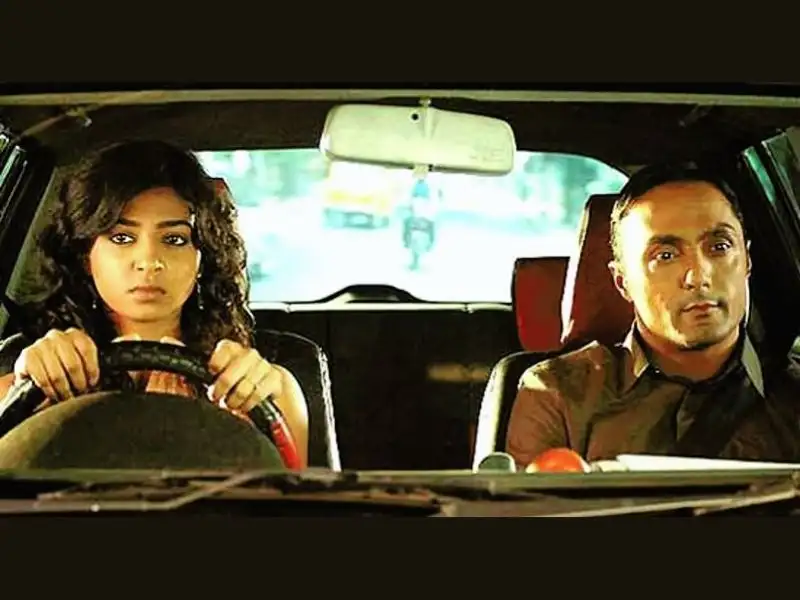
“Antaheen” is a heartwarming romantic drama directed by Aniruddha Roy Chowdhury. The film revolves around the lives of four individuals who are searching for love and companionship in the bustling city of Kolkata. With a stellar ensemble cast including Rahul Bose, Radhika Apte, Aparna Sen, and Sharmila Tagore, “Antaheen” beautifully captures the complexities of modern relationships.
Set against the backdrop of Kolkata, known for its rich cultural heritage and vibrant atmosphere, “Antaheen” delves deep into the lives of its characters, exploring their desires, aspirations, and emotional struggles. The film takes the audience on a journey through the bustling streets of the city, where love and longing intertwine. Rahul Bose portrays the character of Abhik, a talented radio jockey who finds solace in his radio show, where people pour their hearts out and express their deepest emotions.
Radhika Apte plays the role of Brinda, a young woman who is caught between her responsibilities and her desire for freedom. Aparna Sen portrays the character of Gargi, a strong-willed journalist who is determined to make a difference in the world. Sharmila Tagore brings her grace and elegance to the character of Paromita, a woman who is haunted by her past and seeks redemption. As the lives of these characters intertwine, “Antaheen” explores the complexities of love in the modern world. It delves into the challenges faced by individuals in finding genuine connections amidst the chaos of urban life. The film beautifully captures the emotional rollercoaster of relationships, from the initial spark of attraction to the deep-rooted conflicts that arise over time. Aniruddha Roy Chowdhury’s direction adds a layer of authenticity to the film, as he skillfully portrays the nuances of human emotions.
The cinematography beautifully captures the essence of Kolkata, showcasing its vibrant streets, majestic architecture, and the ever-present river Ganges, which serves as a metaphor for the ebb and flow of love. The screenplay, written by Shyamal Sengupta, intricately weaves together the stories of the four protagonists, creating a narrative that is both engaging and thought-provoking. The dialogues are poignant, capturing the essence of the characters’ emotions and dilemmas. “Antaheen” is not just a love story; it is a reflection of the human experience. It explores the universal themes of loneliness, longing, and the innate desire for connection. The film reminds us that love is not always easy, but it is worth the wait. With its stellar performances, captivating storyline, and soul-stirring music composed by Shantanu Moitra, “Antaheen” is a cinematic masterpiece that will leave a lasting impression on the audience. It is a celebration of love, hope, and the resilience of the human spirit in the face of adversity.
“Aparajito”
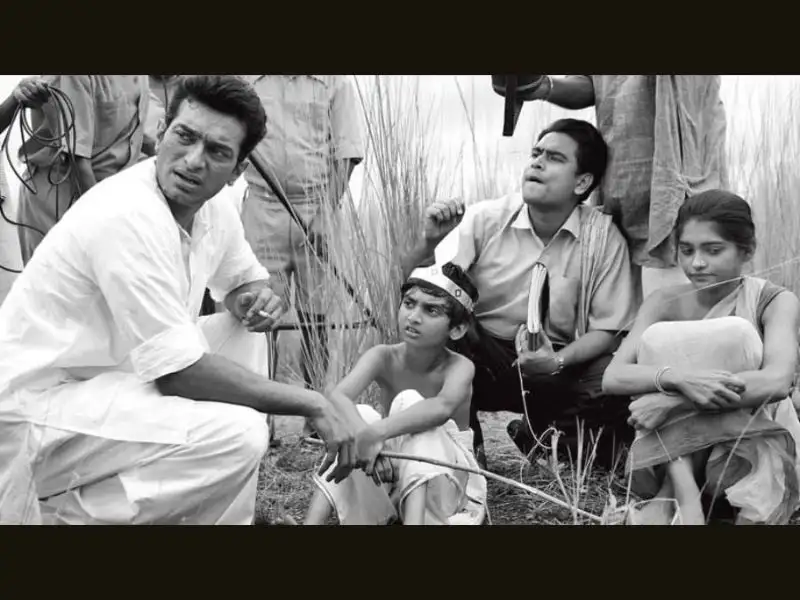
The second installment of Satyajit Ray’s Apu Trilogy, “Aparajito” continues the story of Apu, a young boy growing up in rural Bengal. The film explores Apu’s journey as he navigates the challenges of education, family, and societal expectations. With breathtaking cinematography and a moving narrative, “Aparajito” is a cinematic masterpiece that deserves more recognition.
In “Aparajito,” we witness Apu’s transformation from a curious and innocent child to a determined and ambitious teenager. The film beautifully captures the contrast between the idyllic rural setting of Apu’s childhood and the bustling city life that awaits him. As he leaves his village to pursue his education in the city, Apu is confronted with new experiences and opportunities, but also with the harsh realities of urban life. One of the most striking aspects of “Aparajito” is its portrayal of the complex relationship between Apu and his mother, Sarbajaya. Their bond is both loving and strained, as Apu’s ambitions often clash with his mother’s desire to keep him close.
The film explores the sacrifices that both Apu and Sarbajaya make for each other, highlighting the universal themes of love and sacrifice that resonate with audiences across cultures. Ray’s masterful use of cinematography adds another layer of depth to the film. The sweeping shots of the Bengal countryside and the bustling streets of Kolkata immerse the audience in the world of Apu, allowing us to experience his journey alongside him. The film’s visual beauty is complemented by a hauntingly beautiful score, which further enhances the emotional impact of the story. “Aparajito” also delves into the societal expectations that Apu must confront as he strives for success. As he progresses in his education and begins to establish himself in the city, he is confronted with the pressures to conform and fit into the mold of societal norms. The film raises important questions about the pursuit of individual dreams and the sacrifices that must be made along the way.
Despite its critical acclaim and numerous awards, “Aparajito” remains relatively unknown to mainstream audiences. This is a shame, as the film’s themes and storytelling are timeless and resonate with viewers of all backgrounds. It is a testament to Ray’s skill as a filmmaker that “Aparajito” continues to captivate audiences decades after its release. In conclusion, “Aparajito” is a cinematic gem that deserves to be celebrated and remembered. Its exploration of universal themes, stunning cinematography, and powerful performances make it a true masterpiece of world cinema. Whether you are a fan of Indian cinema or simply appreciate a beautifully crafted film, “Aparajito” is a must-watch that will leave a lasting impact.
“Baishey Srabon”
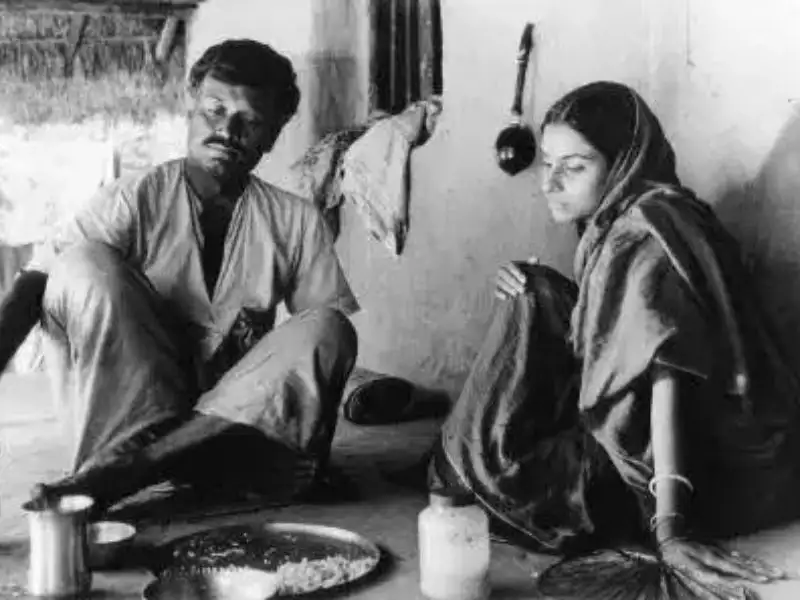
“Baishey Srabon” is a gripping thriller directed by Srijit Mukherji. The film follows the story of two police officers, Prabir Roy (played by Prosenjit Chatterjee) and Abhijit Pakrashi (played by Parambrata Chatterjee), who are on a mission to catch a serial killer terrorizing the city. As the body count rises and the killer’s motives become more obscure, the two officers find themselves entangled in a web of mystery and danger.
What sets “Baishey Srabon” apart from other thrillers is its intricate plot and well-developed characters. The film delves deep into the psychology of the killer, exploring the reasons behind their heinous crimes. As the investigation progresses, Prabir and Abhijit find themselves facing not only physical challenges but also emotional and psychological turmoil.
The performances by Prosenjit Chatterjee and Parambrata Chatterjee are nothing short of exceptional. Prosenjit Chatterjee effortlessly portrays the seasoned and experienced Prabir Roy, a veteran detective haunted by his past. His portrayal is nuanced and layered, capturing the complexities of the character with finesse. On the other hand, Parambrata Chatterjee delivers a stellar performance as Abhijit Pakrashi, a young and ambitious officer who is determined to prove himself. His portrayal brings out the vulnerability and determination of the character, making him relatable and likable.
As the film progresses, the suspense builds up, keeping the audience on the edge of their seats. The director, Srijit Mukherji, skillfully weaves together various elements of the story, creating a tense and gripping narrative. The cinematography and editing further enhance the overall experience, heightening the tension and creating a sense of unease.
“Baishey Srabon” is not just a typical crime thriller; it also explores deeper themes of redemption, justice, and the dark side of human nature. The film raises thought-provoking questions about the nature of evil and the lengths people will go to seek revenge. It challenges the viewers to reflect on their own moral compass and the choices they would make in similar situations.
Raincoat
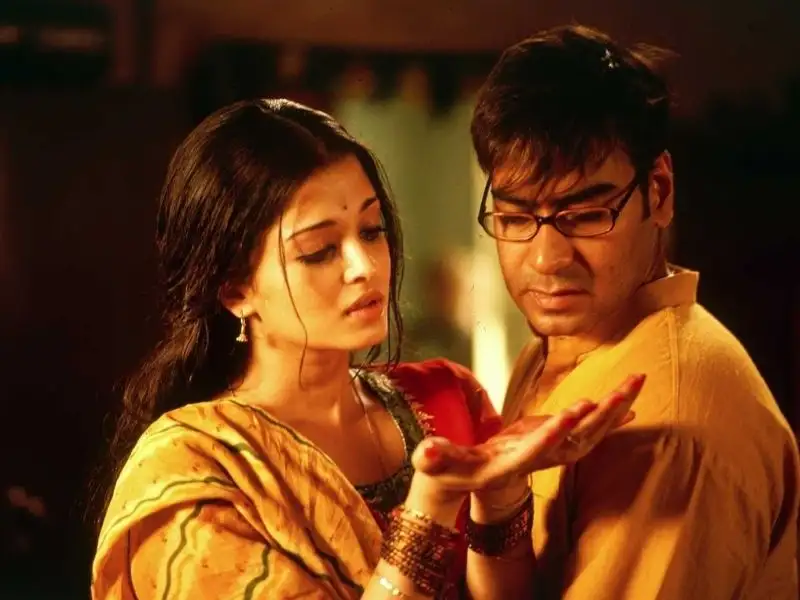
Another gem in Ghosh’s filmography is “Raincoat,” a heart-wrenching tale of lost love and missed opportunities. Starring Aishwarya Rai Bachchan and Ajay Devgn, the film is a poignant exploration of the human condition. Ghosh’s masterful direction and the stellar performances by the lead actors make “Raincoat” a cinematic experience that lingers in the viewer’s mind long after the credits roll.
In addition to his feature films, Ghosh also directed several critically acclaimed television series. One such series is “Gaaner Oparey,” a musical drama that explores the world of Rabindrasangeet (songs written and composed by Rabindranath Tagore). The series received widespread acclaim for its soul-stirring music and compelling storytelling.
Throughout his career, Ghosh pushed the boundaries of storytelling and challenged societal norms through his films. His exploration of themes like gender identity, sexuality, and societal expectations made him a trailblazer in Indian cinema. Ghosh’s films often sparked conversations and debates, forcing audiences to confront uncomfortable truths and question deeply ingrained beliefs.
Unfortunately, Ghosh’s untimely demise in 2013 left a void in the world of Indian cinema. However, his legacy lives on through his films, which continue to inspire and captivate audiences. Ghosh’s filmography serves as a testament to his artistry and his unwavering commitment to telling stories that resonate with people from all walks of life.




